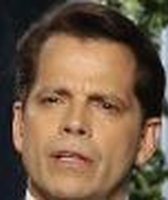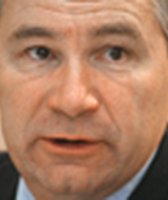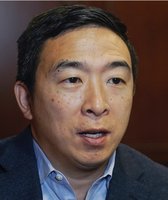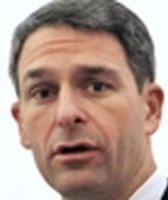Stand up for the facts!
Our only agenda is to publish the truth so you can be an informed participant in democracy.
We need your help.
I would like to contribute
A year ago this week, Donald Trump spokeswoman Hope Hicks issued a bold declaration just days after Trump’s electoral win: "There was no communication between the campaign and any foreign entity during the campaign."
This claim has proved demonstrably false, as a series of revelations have shown members of Trump’s campaign met with Russian officials during the 2016 election.
Since our last update in August of previously undisclosed Trump campaign-Russia links, one former campaign adviser has admitted to the FBI that he used his Russian contacts to try to broker a meeting between then-candidate Trump and Russian President Vladimir Putin.
Another former adviser told lawmakers he met Russia’s deputy prime minister on a July 2016 trip to Moscow that he disclosed to then-Sen. Jeff Sessions. This raised new questions about whether Sessions misled Congress by denying knowledge of Trump campaign contacts with Russia.
With the special counsel’s investigation at full bore, here’s what we know about newly revealed contacts between the Trump campaign and Russian government officials, and what it might mean for the Trump administration.
Sign up for PolitiFact texts
George Papadopoulos’ contacts with Russian officials
Former Trump campaign foreign policy adviser George Papadopoulos pleaded guilty on Oct. 5 to lying to the FBI about his efforts to put the Trump campaign in contact with Moscow.
The government’s charging document, which was unsealed Oct. 31, shows Papadopoulos told members of the campaign, including Trump, that he could use his Russian connections to arrange a meeting between then-candidate Trump and Putin.
Papadopoulos joined the campaign in early March 2016 and later that month met in Italy with someone described in the charging document as a London-based professor, whom Papadopoulos understood to have "substantial connections to Russian government officials."
According to the government’s timeline, the professor met with Papadopoulos on March 24 in London where he introduced the Trump adviser to a female Russian national who purported to be a niece of Putin with links to senior officials in the Moscow. (Papadopoulos would later learn the woman was not related to Putin.)
About a week later at a national security meeting in Washington, D.C., Papadopoulos told Trump and other foreign policy advisers that his Russia contacts could help arrange a Trump-Putin meeting.
Papadopoulos’ contacts with the professor continued, and in April the professor introduced Papadopoulos over email to a person in Moscow who claimed to have connections to the Russian Ministry of Foreign Affairs.
During a subsequent meeting in London in April, the professor told Papadopoulos he recently met with high-ranking Russian government officials in Moscow who had "dirt" on Hillary Clinton — in the form of thousands of emails.
Papadopoulos would labor unsuccessfully to use his relationships to broker an overseas meeting between the Trump campaign and Russian government officials, and even volunteered to attend a meeting himself. The proposed trip never took place, according to the court filing.
During an interview with the FBI, Papadopoulos falsely downplayed his perception of the professor’s cachet among Moscow circles. He told agents the professor was "a nothing," "just a guy talk(ing) up connections or something," and someone Papadopoulos believed was merely "BS’ing."
But the charging document shows Papadopoulos "understood the professor to have substantial connections to high-level Russian government officials."
Papadopoulos’ guilty plea was unsealed on the same day that Special Counsel Robert Mueller indicted former Trump campaign chairman Paul Manafort and his business associate Rick Gates on a dozen felony counts, including money laundering. Manafort and Gates pleaded not guilty to all charges.
Some legal experts believe Mueller’s handling of Papadopoulos may have been calculated to put additional pressure on Manafort to cooperate with the investigation.
Carter Page’s contacts with Russian officials
Another Trump campaign adviser, Carter Page, revealed new details to Congress on Nov. 2 about interactions he had with Russian government officials while the election was in high gear.
A transcript of Page’s testimony to the House Intelligence Committee shows he met with Russian Deputy Prime Minister Arkady Dvorkovich during a July 2016 trip to Moscow, as well as a high-ranking official at the Russian oil company Rosneft.
During his testimony and in a subsequent interview, Page had downplayed the significance of his meetings in Russia.
"I had a very brief hello to a couple of people. That was it," he told the New York Times.
But the transcript shows Page was eager to share with Trump campaign officials the "incredible insights and outreach" gleaned on his Moscow trip.
Page testified that he notified several Trump campaign officials ahead of his Russia trip, apparently seeking permission to accept an invitation to deliver remarks at a university in Moscow. Page said former Trump campaign manager Corey Lewandowski blessed the trip on the condition that Page travel in his personal capacity, not as a Trump campaign affiliate.
In a Nov. 7 interview on Fox News after the publication of Page's testimony, Lewandowski said of the exchange with Page that "my memory has been refreshed." In March, Lewandowski denied having greenlighted Page's Russia trip.
Corey Lewandowski told me in March interview he didn't give Page an OK to travel to Moscow. Page testified he did, and he has the email. pic.twitter.com/aMS73pZF4H
— Steve Reilly (@BySteveReilly) November 7, 2017
Page admitted to lawmakers that he sent an email to Trump campaign staffers describing a private conversation he had with the deputy prime minister who had "expressed strong support for Mr. Trump."
"I’ll send you guys a readout soon regarding some incredible insights and outreach I’ve received from a few Russian legislators and senior members of the Presidential administration here," Page wrote in a July 8, 2016, email during his trip.
Jeff Sessions under renewed scrutiny
In addition to revealing previously undisclosed Russian contacts, the Papadopoulos and Page revelations raise new questions about whether Sessions, now attorney general, misled Congress by claiming he was unaware of any Trump campaign contacts with Russia.
At Sessions’ confirmation hearing before the Senate Judiciary Committee on Jan. 10, Sen. Al Franken, D-Minn., asked Sessions about allegations that associates of the Trump campaign corresponded with Russian government officials.
Franken: "If there is any evidence that anyone affiliated with the Trump campaign communicated with the Russian government in the course of this campaign, what will you do?"
Sessions: "Senator Franken, I'm not aware of any of those activities. I have been called a surrogate at a time or two in that campaign and I didn't have — did not have communications with the Russians, and I'm unable to comment on it."
After his confirmation as attorney general, Sessions recused himself from investigations into Russian interference in the 2016 election after it was revealed that he’d failed to disclose to Congress his meetings with Russian Ambassador Sergey Kislyak during the campaign.
Now Sessions faces additional scrutiny over whether, and to what extent, he had knowledge of Russian outreach by Papadopoulos and Page. Democratic lawmakers told Sessions they plan to probe further when he appears before the House Judiciary Committee Nov. 14.
Sessions is likely to face questions about Page’s July trip to Moscow. Page said he told Sessions about the trip, but downplayed the significance of their communication.
"Back in June 2016, I mentioned in passing that I happened to be planning to give a speech at a university in Moscow," Page told the Washington Examiner on Nov. 2, adding that the trip was "completely unrelated to my limited volunteer role with the campaign."
In a Nov. 7 letter to Sessions, Democratic members of the House judiciary panel noted that according to a photographs and reports, Sessions was present at the national security meeting in Washington, D.C., when Papadopoulos offered to try to arrange the Trump-Putin meeting.
#MakeAmericaGreatAgain #Trump2016https://t.co/aANxirUJJD pic.twitter.com/VlMynYN3sd
— Donald J. Trump (@realDonaldTrump) April 1, 2016
"These facts appear to contradict your sworn testimony on several occasions," the Democratic lawmakers’ letter states.
Our Sources
Statement of the Offense, U.S. v. George Papadopoulos
Testimony of Carter Page, House Intelligence Committee, Nov. 2, 2017
Letter from Democratic members of the House Judiciary Committee to Attorney General Jeff Sessions, Nov. 7, 2017
CQ, Sessions hearing transcript, Jan. 10, 2017
PolitiFact, "3 times Trump team changed its story on Russia," Aug. 3, 2017
PolitiFact, "What you need to know about Manafort indictment, Papadopoulos guilty plea," Oct. 30, 2017
PolitiFact, "In Context: What Jeff Sessions told Al Franken about meeting Russian officials," March 2, 2017
Associated Press, "Russia eyes better ties with Trump; says contacts underway," Nov. 11, 2016
New York Times, "Trump Campaign Adviser Met With Russian Officials in 2016," Nov. 3, 2017
Washington Post, "Attorney General Jeff Sessions will recuse himself from any probe related to 2016 presidential campaign," March 2, 2017
USA Today, "Trump campaign gave Page permission for Moscow trip," March 7, 2017
Washington Examiner, "Carter Page: Telling Jeff Sessions of Russia trip 'was as irrelevant then as it is now,' " Nov. 2, 2017
The Hill, "Sessions to testify before House Judiciary Committee next week," Nov. 7, 2017
Tweet by Vera Bergengruen, Nov. 8, 2017






































